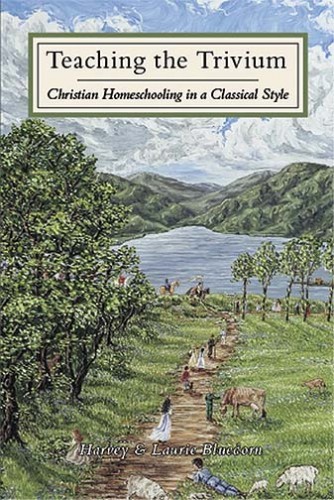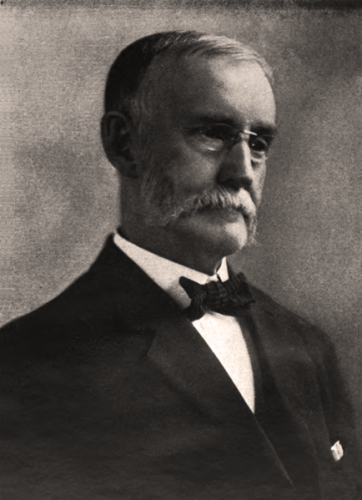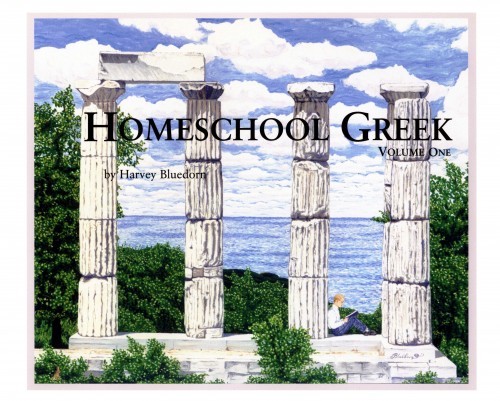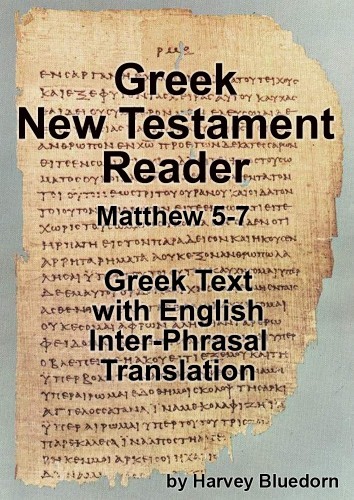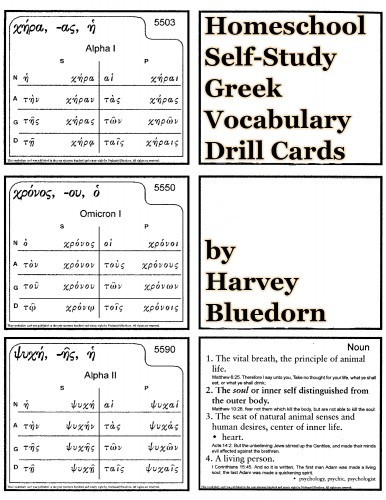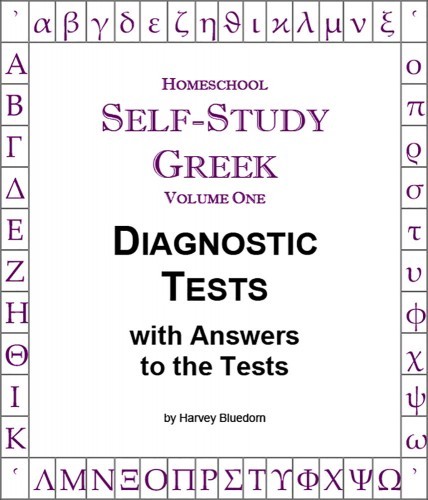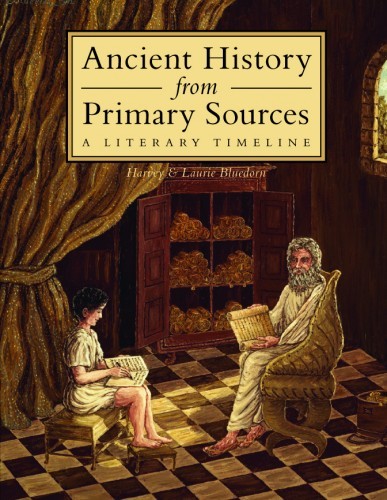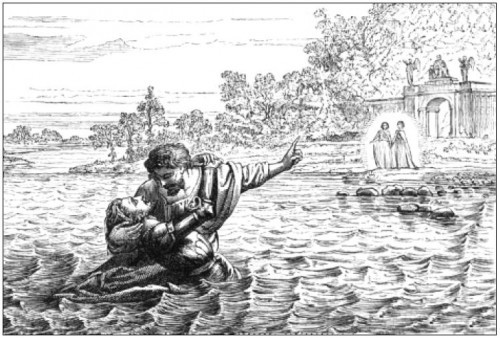Laurie Bluedorn's Blog, page 8
July 31, 2019
How to “jump start” into Christian classical education
I am a “technophobe” and thus hope I am able to do this right. My husband and I pulled 2 of our 3 out of public school when they finished 5th and 3rd grades and for 4 years have been muddling and puddling our way through homeschooling methods, hoping and praying that the Lord will honor our obedience to bring our children home and train them. Though we enjoy our being together and many of the public school weaknesses/bugs have been overcome, some still linger and haunt us, partly because we have not been able to decide/find a “method” that will work for us and have been hopping here and there from year to year.
There is so much out there, plus the fact that I feel I have the public system mentality and often want to school at home. We have come across Christian classical education and wonder whether there is hope for our children to become successful learners considering they are older. Is there a time when it’s too late to start? How we can jump start our three? Our going into 10th grade boy is an average reader but at times misreads words (and will keep on reading), is a poor speller and needs help with grammar and organizing his ideas when writing. Our going into 8th grade girl is an average student who has overcome her reading deficiency, enjoys reading but lags in math and writing and grammar. Our going into 3rd boy needs some support with phonics. I tried Writing Road to Reading (too intensive) and Pathways Phonics (not guided enough). Please advise as to how we can jump start all three into classical education, if it’s not too late for the older two.
Thank you so much to any and all suggestions. SC
No, it’s not too late.
Concerning phonics for your younger child, I suggest All About Reading. All About Reading is a scripted, open-and-go program developed for busy parents, teachers, and tutors who want to teach reading in the most effective way possible. This program doesn’t require long periods of study, you don’t have to develop your own lesson plans, and you don’t have to stress over what to teach next because everything is laid out for you, step by step. You’ll get solid grounding in how to teach reading without being overwhelmed. My daughter uses this with her children, and I help her when I’m visiting. I highly recommend it.
Many of the suggestions for the under age ten children (see Chapter 11 of our book Teaching the Trivium — Ten Things to Do Before Age Ten) would apply to all your children: parents reading aloud two hours a day; memorization; oral narration; etc. These activities will help develop language skills. The Ten Things are how you “jump start” into Christian classical education.
Concerning writing and grammar for the older two, I suggest starting at the beginning with a short period of time spent on copywork (perhaps a month or so), moving on to dictation, then on to letter writing and journal entries, and at some point starting outlining and more creative writing such as essays and book reviews. You might want to get yourself a good writing and/or grammar curriculum to help you with this process. We also discuss this in more detail in Teaching the Trivium.
And remember that Christian classical education is not just adding to your curriculum more subjects or studying history chronologically. It’s a way of life. If your children are spending a couple hours a day with “pictures” (TV, videos, computer games, etc.) then they won’t have the time they need to develop good language skills and creative abilities.
Great educational ideas that you can use right now
The River Houses project is a big and wonderful plan to create a new type of national homeschool network made up of friendly local groups called “houses.” They’re getting started by creating a comfortable rhythm of informal learning with traditions, holidays, poems, places, birds, stars, little lessons, and great educational ideas that you can use right now to give a light structure to your homeschool year. Over the coming months they will be developing organizational elements that will let people form local houses and join together into a flourishing federation. Sign up for their free newsletter to get great homeschool ideas all through the year and to follow along as their grand plans develop.
July 26, 2019
Interview with Hans Bluedorn on writing and the creative process
July 25, 2019
Words to liven up your summer
• brio = vigor, lively energy
• comeuppance = deserved fate, something unpleasant, regarded as a just punishment for somebody
• consigliere = an adviser to the leader of a crime syndicate (organized-crime boss)
• expropriate = to take something (property or money) away from the rightful owner, either legally for the public good or illegally by theft or fraud
• falderal = foolish nonsense
• gratuitous = unnecessary and unjustifiable; received or given without payment or obligation; LAW: not requiring any benefit or compensation in return
• machismo = an exaggerated sense or display of masculinity, emphasizing characteristics that are conventionally regarded as male, usually physical strength and courage, aggressiveness, and lack of emotional response
• malaise = a general feeling of illness or sickness of no diagnostic significance; a general feeling of worry, discontent, or dissatisfaction, often resulting in lethargy
• milieu = the surroundings or environment that somebody lives in and is influenced by
• moribund = in the process of becoming obsolete; nearly dead
• replete = amply, completely, or fully supplied or equipped with something
• roil = to make or to become opaque, to stir up a liquid so that the sediment becomes dispersed through the liquid and makes it cloudy, or become cloudy with sediment by being stirred; to make somebody angry
• thrall = domination, a condition of being controlled by a more powerful person or force; somebody whose life is completely controlled by a more powerful person or a moral or intellectual force; … by a particular physical or mental need
• timbre = the quality or color of tone of an instrument or voice; the quality of a speech sound that comes from its tone rather than its pitch or volume
Nothing in this world is more beautiful
by J.R. Miller
A ship is made to go in the water, and no matter how deep the sea nor how wild the tempest, all goes well as long as the water does not get into the ship. The problem of managing a ship is not to keep the ship out of the water but to keep the water out of the ship.
In this world, we cannot avoid all cares and trials and temptations. The goal of true Christian living is to keep these cares and trials and temptations from getting into our souls. Some people let all their frets and worries at once into their hearts, and they soon live out their lives in sourness, irritability, and discontent. They become thus miserable themselves, and they make all around them miserable. They cast, not cooling, healthful, refreshing shade on others, but melancholy, darksome, chilling shadows.
Learn to keep your cares in your hands and out of your hearts. Nothing in this world is more beautiful than a Christian life with many trials and cares, yet remaining ever peaceful and joyous amid them all. This is the real goal of noble Christian living.
James Russell Miller (1840 – 1912) was a popular Christian author, Editorial Superintendent of the Presbyterian Board of Publication, and pastor of several churches in Pennsylvania and Illinois.
July 14, 2019
Homeschool Greek now on Kindle for $19.99
Homeschool Self-Study Greek: A Thorough Self-Teaching Grammar of Biblical Greek — $9.99
Homeschool Self-Study Greek: A Thorough Self-Teaching Grammar of Biblical Greek is like no other Biblical Greek grammar.
Not only is Homeschool Greek self-teaching, but it is thorough. Students, both young and old, can teach themselves Greek in homeschool, in private school, or as a preparation for seminary or college.
Features include:
1. For ages 13 through adult — unlike other grammars, this is designed for younger students.
2. Teaches English grammar before it introduces Greek grammar.
3. Self-teaching — you do not need a teacher; the text is your teacher; the text continually asks questions and confirms or corrects your answers.
4. Programmed — the text takes us through the normal trivium process of learning.
5. Extensive preprinted Vocabulary Drill Cards.
6. A Greek New Testament Reader which covers Matthew 5-7, including an English translation.
7. Audio pronunciation files for both the textbook and the reader.
8. Diagnostic tests to determine whether the material has been mastered, and if not, what material to restudy.
Volume One has 18 chapters divided into 95 lessons and 15 comprehensive tests. The material begins very easy, gradually increases in difficulty, and concludes with five challenging chapters. The last 10 chapters use Biblical expressions for examples and exercises. The student must memorize numerous Greek passages from the Proverbs and the New Testament. The text points out information which the student is required to enter in an orderly Greek notebook. After completing Volume One, the student should have a working knowledge of Greek nouns, pronouns, adjectives, and prepositions and some knowledge of the Greek verb system. Younger students will take up to two years to complete Volume One. Adult students may be able to complete it in a few months.
There are four components to Homeschool Self-Study Greek: A Thorough Self-teaching Grammar of Biblical Greek:
1. Homeschool Self-Study Greek: A Thorough Self-teaching Grammar of Biblical Greek Textbook
2. Homeschool Self-Study Greek: New Testament Reader
3. Homeschool Self-Study Greek: Diagnostic Tests
4. Homeschool Self-Study Greek: Vocabulary Drill Cards
Audio pronunciation files for both the textbook and the reader are found here.
This Homeschool Self-Study Greek: New Testament Reader provides easy to use and profitable reading material for the beginning Greek student.
In this reader, the Greek text is divided into smaller units of thought (clauses, phrases, etc.), and an evenly flowing English translation is placed immediately below each smaller unit of the Greek text. An abbreviation which identifies the part of speech is placed before each Greek word. The same subscript is added to the corresponding word(s) in the English translation. In this way, anyone can easily determine which words in the English translation correspond to specific words in the Greek text, or vice versa. This produces both an evenly flowing English translation – like an inter-columnar translation – but also a direct word-for-word correspondence – like an interlinear translation – while all the parts of speech are identified in both Greek and English.
A guide to Greek syllable division is included in order to help the Greek student in the audible reading of the text.
An interpretive outline is inter-woven within the text in order to help the reader to follow the sense of what he is reading.
Though this Greek Reader is a stand-alone product, it was developed to be used along with Homeschool Self-Study Greek: A Thorough Self-teaching Grammar of Biblical Greek.
Audio pronunciation files for both the textbook and the reader are found here.
Homeschool Self-Study Greek: Vocabulary Drill Cards — $3.99
Though these Greek Vocabulary Drill Cards are a stand-alone product, they were developed to be used along with Homeschool Self-Study Greek: A Thorough Self-teaching Grammar of Biblical Greek.
These Vocabulary Drill Cards cover all the Greek vocabulary introduced in Homeschool Self-Study Greek. Each card lists: 1) the Greek word’s formal lexical entry; 2) the category of inflection into which the word falls, or its part of speech; 3) Strong’s number for the word; 4) all of the forms of the word which you will need to know for this volume of Homeschool Self-Study Greek; 5) an English definition for the Greek word with a Bible verse illustrating that definition; and 6) English derivatives and other information.
Homeschool Self-Study Greek: Diagnostic Tests — $1.99
This booklet of Homeschool Self-Study Greek: Diagnostic Tests consists of fifteen tests which cover the eighteen chapters of the text. These tests help the student to evaluate whether he has sufficiently mastered the material. Each test question identifies the chapter and lesson where the material covered in the question can be found, so that he can restudy the relevant material. The answer for each question is found at the back of the booklet.
These diagnostic tests were developed to be used along with Homeschool Self-Study Greek: A Thorough Self-teaching Grammar of Biblical Greek.
If you prefer, you can buy the printed copy of all four components of Homeschool Greek here for $90.
Review of Homeschool Greek by Cathy Duffy
This is a self-contained Greek course for students ages thirteen and up. The Volume I course, “Mostly Nouns and Such,” consists of a 310-page, plastic comb-bound textbook, a 65-page Greek reader, vocabulary cards, and test booklet. It assumes that students are familiar with the symbols and sounds of the Greek alphabet. (A Greek Alphabetarion provides the necessary groundwork.) Students need not have prior instruction in English grammar, although it will certainly be helpful. See the rest of this review at Cathy Duffy’s web site.
June 22, 2019
Was Paul a classical Greek scholar?
Was Paul a classical Greek scholar?
[This is Appendix 3 from Ancient History from Primary Sources: A Literary Timeline by
Harvey and Laurie Bluedorn, 2003, revised 2019.]
[XT = eXegetical Translation, New Testament]
It is one thing to deal with classical Greek myths, and quite another to deal with myths about classical Greek. One such myth, which has had rather wide circulation, is the notion that Paul was a scholar of classical Greek literature and philosophy.
It is alleged that the Apostle Paul quoted several classical Greek authors, and this is presented as conclusive and irrefutable evidence of his classical scholarship. We will first examine the three quotations – real or alleged – which are presented as the primary examples for Paul’s scholarship.
Whence did he get the saying, ‘The Cretans are always liars, evil beasts, slow-bellies,’ but from a perusal of The Oracles of Epimenides, the Cretan Initiator? Or how would he have known this ‘For we are also his offspring,’ had he not been acquainted with The Phenomena of Aratus the astronomer? Again this sentence, ‘Evil communications corrupt good manners,’ is a sufficient proof that he was conversant with the tragedies of Euripides. —-Socrates Scholasticus, History of the Church, 3.16
Read the rest of the article in Appendix 3 of Ancient History from Primary Sources: A Literary Timeline
June 3, 2019
My friend Jeri Sisson
My friend Jeri Sisson died this week. I’ve known her since the late 80’s — when we all were figuring out how to do this homeschooling thing here in Illinois. The Sissons were the first ones to work on connecting homeschooling families across the state and organize the first Illinois homeschool convention — the state-wide convention which continues to this day. She died on the first day of this year’s convention.
Hopeful was my nickname for her. She always had my back — always encouraged me, always pointed me to Christ. I could depend on her to do all those things as my friend. She was ever Hopeful and used by God to help others in their journey.

The Pilgrims passing through the River of Death

Hopeful also would endeavor to comfort him, saying, “Brother, I see the gate and men standing by it to receive us.” But Christian would answer, “‘Tis you, ’tis you they wait for; you have been Hopeful ever since I knew you.”
Homeschooling in Tajikistan
Dear Laurie,
I have often thought about writing you and now I am finally getting around to it. We are settled quite nicely now in Dushanbe, Tajikistan, a city of about 500,000 people, most of whom are Tajiks. There is an 8% population of Russians here still. Many Russians left after the overthrow of the Soviet Union.
I am writing because I have missed getting your “Teaching the Trivium” magazine and I would like to have you send to my mother all of the issues that I have missed. After several months of moving around and disorder, we have finally gotten into a school routine again and it is such a blessing. Nathaniel (my son who is 12 now) is studying Russian every day with a Russian young woman who comes to our house. Nate is reading Russian already and building vocabulary everyday. His pronunciation is quite good, too. He was the one who really wanted to learn Russian so we let him put aside his Latin for awhile in order to devote more time to his Russian studies while we are here in this country where everyone speaks Russian. I noticed that Dorothy Sayers recommended Russian for those who objected to learning a dead language! Anyway, Nate is doing quite well and so we are encouraging him. We are going to start spending more time with Greek this next year and I am looking forward to that.
I have also been having the same old problem I always have and that is trying to cover too much information each day and using too many workbooks. How do you keep things simple? Do you struggle with this? I just reread your suggested daily schedule and it looked so simple compared to what I try to do. I keep my kids on a rigid full schedule and I think I am burning them out! My son especially is feeling frustrated because of too much to do. I would like to simplify without compromising the kids’ education. I realize that I have a tendency to try to do too much and therefore take pleasure out of many subjects.
Thank you Laurie for your help. You have been such an encouragement to me. Your friend, Teresa
Dear Teresa,
To think I’m getting an email from halfway around the globe. I picture you living in the mountains of Tibet in a tent made of skins eating milk curds and salted coffee.
I would think at this time in your life you would take full advantage of your living situation. Workbooks will always be there, but you will not always be in Tajikistan. I don’t have any idea what it is like living in a foreign country or how long you will be there, but there is probably an endless source of unit studies where you are. Here are some suggestions:
Take advantage of the language situation. If you can surround yourself with people who speak the language (whatever language you are learning) your children will learn inductively. It would be great if they could become bi-lingual. The process of learning another language, even inductively where you are not necessarily learning the grammar, builds and strengthens the mind. The Russian is great. If you are only going to be there a few years, I would consider dropping Latin and Greek temporarily to take advantage of the language around you.
You are living in field trip heaven. Travel and explore. History, geography, culture, food, art, textiles, history of religions, clothing, flora and fauna, learn local crafts.
And of course there are the service opportunities, which is why you are there in the first place.
If you are only going to be there a year, I might even be tempted to drop math if it interferes with and doesn’t leave you time for these things.
What is education? For some it is books and workbooks. For the few people who are given the opportunity to live in an exotic foreign country, it could be something entirely different. Write me again. Laurie
May 16, 2019
I am interested in classical education but am concerned about a few things
Question: I am interested in classical education but am concerned about a few things. I have heard several speakers recommend books by secular authors. One classical educator even recommended reading Hitler’s Mein Kampf. There also seems to be a large focus on mythology. It seems everyone I know who teaches classically uses books or materials which have questionable material in them. My children are young, and although I want them to be well educated, I also want to protect them from questionable influences. Is there a way to teach classically without exposing children (or ourselves) to what God says is an abomination?
Answer: You are not alone in your concerns. We must distinguish the classical style of education from the classical humanist literature which is often associated with it. The classical humanists are not the source of all wisdom. Indeed, they are the source of much sophisticated folly. The only true source of wisdom is Scripture. It is true that the classical humanists have greatly affected the world we live in. It is also true that a certain knowledge of them can be useful. It is not true that an easy familiarity with them is necessarily good or desirable. A few people may be called to this degree of knowledge, just as a few people are called to special knowledge in other areas of learning. Sadly, some have sought such knowledge out of classical snobbery and parental peer pressure. This should never be our motivation.
The ancient historians, geographers, and biographers are the primary sources for what we know of ancient times. They are written from a secular point of view, which must be countered, and they contain occasional statements which many parents will not want their children exposed to, so we need to pre-read these in the same way that we might preview a movie. The ancient philosophers are clever men filled with many vain thoughts. Lest someone become entangled in one of their labyrinths of reasoning, we recommend that mature Christians be guided on a tour through the philosophers by someone who is well grounded in Christian thought. The ancient poets, satirists, tragedians, and comedians are, with few exceptions, filled with questionable and graphic content. To handle these, we must first put on our chore boots, and afterwards take a good shower. Generally speaking, they are better left alone.
Whatever we do, we must remember that the classical must always submit to the Christian. We must be prepared to take captive every category of knowledge including classical knowledge and make it serve our Lord Jesus (Second Corinthians 10:4,5). Remember, these things were originally written in order to propagate a non-Christian worldview. Unless we take appropriate counter measures, this is exactly what they will do.

